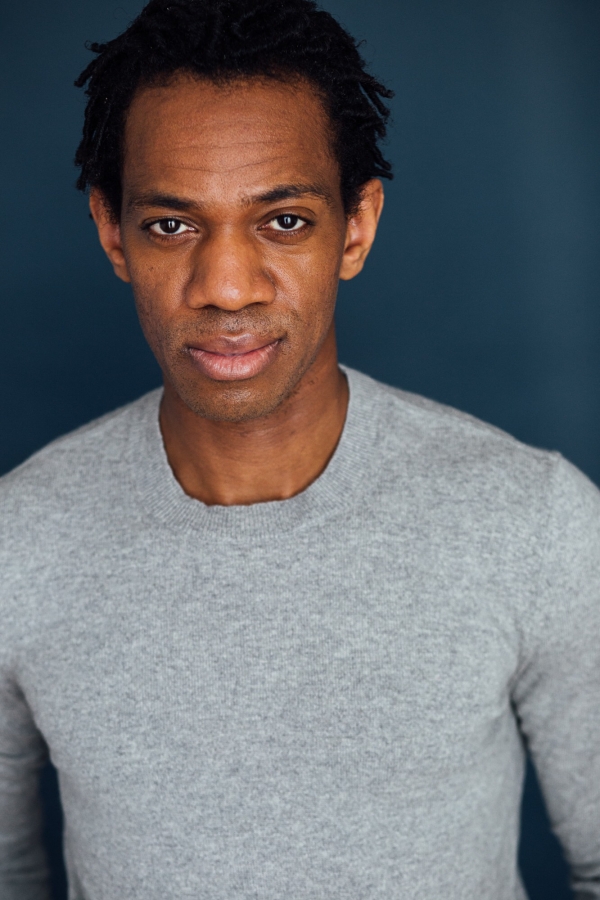Of all of Toni Morrison’s works, 1970’s “The Bluest Eye” may be her strangest and most controversial. Touching on the Depression Era subject of a young black girl, Pecola Breedlove, criticized for the darkness of her skin and her dreams of “whiteness” (hence the book’s title) tears ferociously into topics of racism, incest and child molestation (with numerous state attempts to ban it from libraries and schools).
For its adaptation of “The Bluest Eye,” Philadelphia’s Philly’s Arden Theatre Company welcomes acclaimed stage veteran Reggie White to the F. Otto Haas Stage as the central character’s father, Cholly. We chatted with the Southern California/New Orleans transplant from his current home in Brooklyn, NY.
PGN: What is your feeling for Toni Morrison?
A: What is beautiful about Morrison’s book is that the writing is just so exquisite. The imagery she creates is so full and vibrant that it’s not a stretch to imagine the novel itself as a piece of theater. Morrison’s imagery is so precise, not passing a single opportunity to add dimension, weight, and beauty to each object she conjures. She set up the world in a six-dimensional way. I mean, it’s a classic for a reason.
PGN: What do you believe Lydia R. Diamond did in transforming “The Bluest Eye” from Morrison’s original piece?
RW: It’s such a great adaptation because it doesn’t try to be a page-by-page transcription nor does it try to elevate itself above the level of the original work. Lydia Diamond uses her sharply honed skills as a playwright to streamline the dramaturgy of the novel and make it seamlessly theatrical. Diamond rightly trusted Morrison’s novel to be “enough.” It feels as if Diamond wrote this script alongside Morrison.
PGN: The notion of playing to a mainstream — the inclusion of Caucasians, praying for Shirley Temple’s blue eyes — seems so apart from what is happening now. Yet the destructive power of racism and the strength of a community attempting to embrace an era of change is also a part of “The Bluest Eye.” How does this speak to the moment?
RW: We might be in a moment where, because of social media and our unparalleled influence on global pop culture, black people have more visibility and agency than we’ve ever had before, and as a result, we are reclaiming not only our time, but our joy, our beauty, our narrative and our right to live. But this impulse to reclaim those things didn’t come from nowhere. It is in direct response to the over 400 years of continuing discriminatory treatment toward the descendants of the stolen African people that is as inextricable to the fabric of this country as the stars and stripes on the flag. It’s important to acknowledge the ruinous effect that the tag-team of racism and capitalism have had on black people in this country. Pecola’s obsession with Shirley Temple came from her desire to no longer be invisible. And for so long in this country, only white bodies were considered beautiful. We were grotesque. No child wants to grow up feeling like an object to be either ignored or gawked at. America forced Pecola to love Shirley Temple. And we need to talk about that. We need to deal with that. So today, it’s not just enough for black people to say that we love ourselves. White people also need to acknowledge the myriad ways that they have force-fed a steady diet of self-hatred to black people since the ideation of this nation. We need to have these discussions in our communities. Not just the black community or the white community, but together. If we’re ever going to try to heal together, we need to do this work together. And this play can be the start of some very necessary conversations. There certainly has been some small progress in this nation, but we are nowhere near out of the woods yet.
PGN: What is most bracing element of The Bluest Eye and how do you move through this?
RW: Cholly, among many other things, assaults his own daughter. As an actor and as a person who deeply loves, admires and respects women, it makes playing this role and that moment unspeakably hard for me. On the first day of rehearsal, Raelle [Myrick-Hodges, the director] asked each of us, “What do you want the audience to do as a result of seeing the show?” And what became clear to me over the course of working on this show is that I want society to change its behavior towards black women. Almost 60 years ago Malcolm X said, “The most disrespected woman in America, is the black woman. The most unprotected person in America is the black woman. The most neglected person in America is the black woman.” That hasn’t really changed much. We ask Black women to withstand and withstand and withstand with no promise of rest or respite or restoration. We need to acknowledge the many ways that we, as a society, have failed black women and we need to do better.
